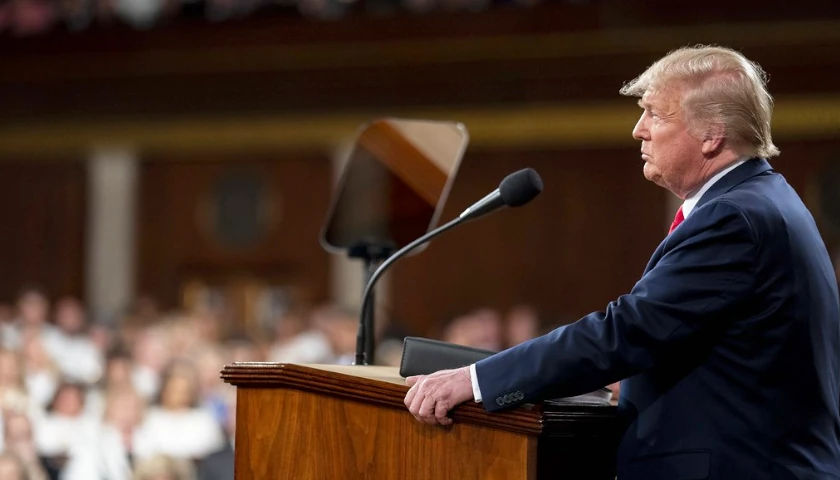by Owen Klinsky
Over a third of the more than 3 million jobs the Biden administration announced were added in initial reports between April 2023 and March 2024 did not actually exist, according to data from the Bureau of Labor Statistics (BLS).
Including monthly revisions, the Biden administration overstated the number of jobs in the U.S. economy by 1.18 million in the year through March, accounting for approximately 36% of the 3.24 million jobs initially claimed, according to data from the BLS calculated by the Daily Caller News Foundation. The massive revision, along with a disappointing July jobs report that showed the U.S. economy adding 61,000 fewer nonfarm payroll jobs than economists anticipated, has heightened fears of a recession.
“One of the few areas that President Joe Biden and Vice President Kamala Harris have been able to crow about since they took office has been employment,” an analysis of the revision performed by conservative advocacy group Committee to Unleash Prosperity stated. “But now we learn that much of this was a statistical illusion.”
Don't forget that today's massive downward benchmark revision (2nd largest on record) is on top of the existing downward revision to the initial monthly jobs report figures – btwn all the revisions, job growth for the 12-month period was wildly overestimated almost 1.2 million: pic.twitter.com/bZpKQdTVMA
— E.J. Antoni, Ph.D. (@RealEJAntoni) August 21, 2024
 Following the jobs revision, Federal Reserve Chairman Jerome Powell signaled Friday in a speech at the Jackson Hole Symposium that the Fed was concerned about the labor market, stating the Federal Open Market Committee (FOMC) does “not seek or welcome further cooling in labor market conditions,” adding that “the upside risks to inflation have diminished, and the downside risks of employment have increased.”
Following the jobs revision, Federal Reserve Chairman Jerome Powell signaled Friday in a speech at the Jackson Hole Symposium that the Fed was concerned about the labor market, stating the Federal Open Market Committee (FOMC) does “not seek or welcome further cooling in labor market conditions,” adding that “the upside risks to inflation have diminished, and the downside risks of employment have increased.”
Unemployment rose 0.2% to 4.3% in July, while year-over-year inflation fell below 3% in that same month for the first time since 2021.
Despite the rise in unemployment, Powell said in his speech that he believes an economic soft landing — a scenario in which inflation falls while the economy avoids recession — is attainable, saying, “With an appropriate dialing back of policy restraint, there is good reason to think that the economy will get back to 2% inflation while maintaining a strong labor market.”
As of Friday, approximately 65% of traders predict the FOMC will reduce its target federal funds rate by 0.25%, while roughly 35% expect a 0.5% reduction. The FOMC has held the federal funds range at a 23-year high of 5.25%-5.50% since August 2023, according to the Federal Reserve Bank of St. Louis.
The White House did not immediately respond to a request for comment.
– – –
Owen Klinsky is a reporter at Daily Caller News Foundation.





